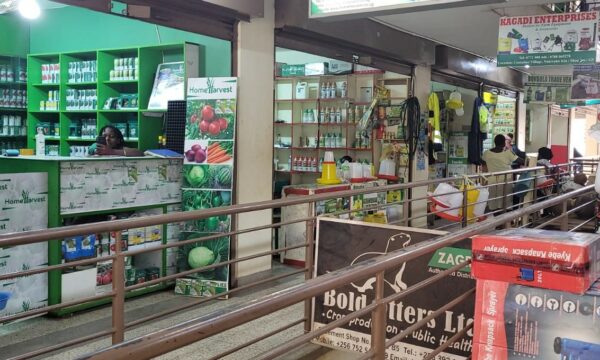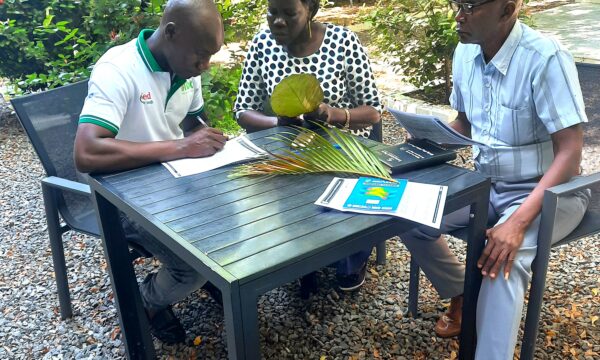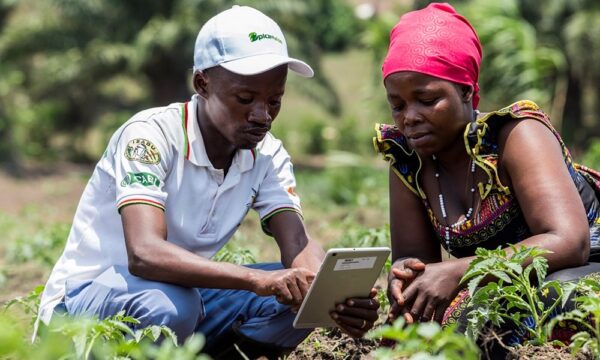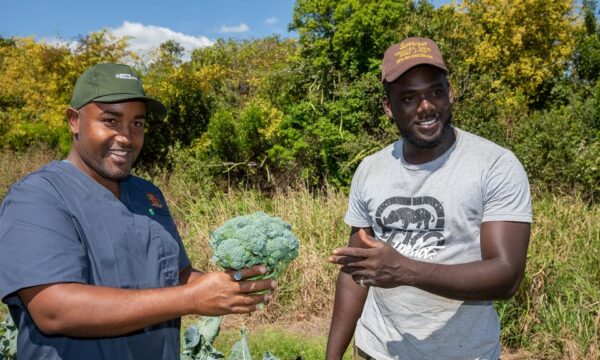Reblogged from the Trinidad Express.

Successful completion: Senator Avinash Singh, Parliamentary Secretary in the Ministry of Agriculture, Land and Fisheries presents a certificate of completion to agricultural extension officer, Jyothi Singh. Image: Trinidad Express
A two day training on Plant Disease Diagnosis was conducted in the Department of Food, Faculty of Food and Agriculture, The University of the West Indies, St Augustine from July 13 to 14 to agricultural extension officers of Trinidad and Tobago.
The training was organised under the auspices of The UWI-RDI (Research Development Impact) funded project on ‘Promoting Agriculturally Important Microorganisms to Address the Challenges in Food Safety and Food Security in the Caribbean”. The training was attended by 23 agricultural extension officers of Trinidad and Tobago representing seven counties [St George, St David, St Andrew, County Caroni, Nariva/Mayaro, St Patrick West, County Victoria] of North Regional Administration and South Regional Administration, Research Division Central Experiment Station, Extension Training and Information Services Division and Agricultural Division of Tobago. During the training programme, the agricultural extension officers were trained to diagnose the various vegetable diseases caused by fungi, bacteria, viruses based on the symptom expressed in roots, stems, vascular tissues, leaves and fruits.
They had hands on experience in identification of damping off in vegetable nurseries; Phytophthora collar rot and anthracnose in hot pepper; gummy stem blight in pumpkin and christophene; fungal and bacterial wilts in tomato; downy mildew and powdery mildew in cucurbits and okra; black mold in okra; cercospora leaf spot in cucurbits; rust and pod rot in bodi; bacterial leaf spot and leaf speck in tomato, hot pepper and lettuce. Further, the training has exposed the officers to identify the pathogens based on the existence of signs, microscopic observations, morphological characters and molecular techniques such as ELISA (Enzyme Linked Immunosorbent Assay) and PCR (Polymerase Chain Reaction).
Participants were trained to isolate and observe the pathogenic fungi and bacteria from the infected cucumber and tomato plants. Senator Avinash Singh, Parliamentary Secretary, Ministry of Agriculture, Land and Fisheries attended the closing ceremony of the two day training programme on July 14 to deliver the special address and present certificates of participation to the 23 officers who successfully completed the training programme. Singh emphasised the need for plant disease diagnosis by quoting the Plantwise programme’s data on the current loss in crop production due to plant pests and diseases.
He also said that for every one per cent reduction in crop pests and diseases, Plantwise programme has estimated that an extra 25 million people could be fed. He called for the further empowering of agricultural extension officers in the field of pest and disease control by training programmes that would effectively serve the farming community. Singh, himself a farmer, shared his own experience with serious occurrence of pest and disease problems in crops.
Dr Reynold Stone, head, Department of Food Production and Dr Wayne Ganpat, head, Department of Agricultural Economics and Extension, were present and congratulated the participants for successful completion of the training. The training was facilitated by Dr Duraisamy Saravanakumar, senior lecture and AIMS Project Leader, UWI-RDI Fund, Department of Food Production, Faculty of Food and Agriculture, UWI, St Augustine campus.
Read the original article on the Trinidad Express website→
2 Comments
Leave a Reply
Related News & Blogs
Plant clinics showcased at Harvest Money Expo in Uganda to help empower the country’s young smallholder farmers
The CABI-led PlantwisePlus programme showcased its plant clinics at the Harvest Money Expo in Uganda to help empower the country’s young smallholder farmers to grow more and lose less to potentially devastating crop pests and diseases. The Harvest Mone…
22 March 2024





Great news, Solomon Islands should do the same, we have many fresh varieties of fruits and vegetables grown locally.
Wow. A great initiative for making people aware about the plants, its diseases and diagnosis. Keep it up!